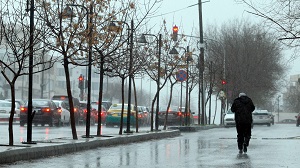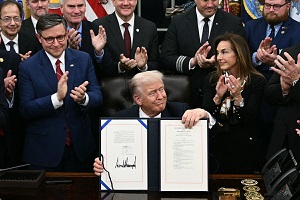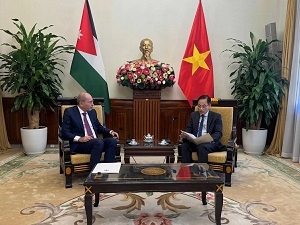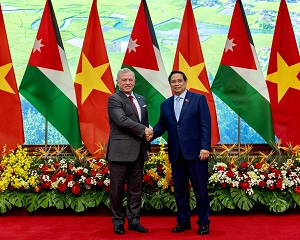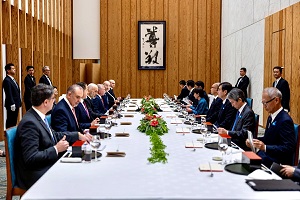How indigenous peoples will drive progress at COP30 - By Sonia Guajajara , The Jordan Times
BELÉM – This year’s United Nations Climate Change Conference (COP30) in Belém, Brazil, has been eagerly awaited worldwide. A COP in the Amazon raises expectations for all those who recognise the urgency of climate change and its impact on our lives and environment. That is why Brazilian President Luiz Inácio Lula da Silva is calling this the COP of Truth.
As co-hosts for this COP, the Indigenous peoples and local communities of Brazil’s Amazon region understand what is at stake. We are among those who suffer the most from climate change, since our lives and livelihoods are directly connected to the natural ecosystems and biodiversity that global warming threatens. We are also among those who can provide some of the most powerful responses to the problem. For example, territories managed by Indigenous peoples and local communities have deforestation rates up to 50 per cent lower than other areas.
This is no accident. We are spiritually connected to nature; by relying on traditional knowledge to safeguard our territories, we also protect crucial carbon sinks and ecosystem services that benefit everyone.
To meet the urgent goals enshrined in the Paris climate agreement, everyone must recognise the contributions of Indigenous peoples in formulating climate policies. That means recognising territorial protection and land-tenure policies as inherently effective climate measures.
Such recognition also highlights another issue. Historically, Indigenous peoples have received the fewest resources in the flow of climate and environmental finance: Less than 1 per cent of all funding actually reaches these territories, which is both inefficient and unjust. That is why the Brazilian government, working closely with other countries and Indigenous organisations, has gone to great lengths to ensure that COP30 benefits those who protect forests.
Among the measures needed to make this a reality is the Intergovernmental Land Tenure Commitment, announced at the COP30 World Leaders Summit on November 6. The goal is to recognize and secure a predefined amount of land or territories managed by Indigenous peoples and local communities by 2030. Such a historic agreement is not only ambitious; it is also the first global commitment on land tenure. Brazil has worked with the Forest and Climate Leaders’ Partnership, a coalition of 36 governments and the European Union, to advance this vital commitment, setting the stage for COP30 to become a defining moment in the global climate agenda.
Moreover, donor governments and philanthropic institutions will renew a 2021 commitment (initially made at COP26 in Glasgow) to allocate another $1.7 billion over the next five years to programs that strengthen land tenure and forests. The original commitment exceeded the initial target, and $1.86 billion has already been mobilized. By renewing it, governments and civil society are signaling that they remain as committed as ever to this critical dimension of climate action.
After being announced by heads of state and government, these commitments will be formally signed on November 17 at an event showcasing the COP30 Action Agenda, a central theme of which is to achieve a “global ethical balance.” For example, only around 10 per cent of that $1.86 billion is estimated to have been transferred directly to Indigenous peoples and local communities. With the “Pledge 2.0”, and as part of the COP30 Action Agenda, we aim to increase this percentage substantially. Those who manage their territories more effectively deserve to manage a greater share of the resources allocated for territorial protection.
Following the announcement at the World Leaders Summit, the land tenure and financial commitments will be officially launched at an event in the Blue Zone that I will lead on November 17. I will be joined by ministers and officials from other tropical countries, donors, philanthropic institutions, and, of course, Indigenous leaders.
Moreover, these commitments will serve as the foundation for another major initiative at this COP: The launch of the Tropical Forest Forever Facility. Since Indigenous peoples and local communities are essential to guaranteeing the successful implementation of this facility, they will manage at least 20 per cent of the funds it mobilises.
These are major breakthroughs, and it is important to remember that they were made possible only because Indigenous peoples and local communities have demanded a voice in decision-making processes. Participation is crucial to recognition. That is why we have a Ministry of Indigenous Peoples in Brazil, and it is why COP30 will elevate our unique voices and insights. Through my ministry, Indigenous organizations, and other partners, we are making possible the COP Village, an accommodation for three thousand Indigenous people who will be the heart of this COP.
We will also have the largest number of Indigenous people in the world accredited in the Blue Zone, thanks to the COP30 presidency’s creation of a People’s Circle. By offering better forms of participation and advocacy, Brazil has created the conditions for Indigenous peoples and local communities to be heard like never before.
Brazil invites all governments, donors, and development institutions to join the Intergovernmental Land Tenure Commitment and to contribute to the renewed Land and Forest Pledge. Only by working together can we protect the world’s ecosystems, strengthen land tenure and the rights of Indigenous peoples and local communities, and invest in people as the foundation for resilient development, a just transition and lasting climate stability.
Sonia Guajajara is Brazil’s minister of indigenous peoples
